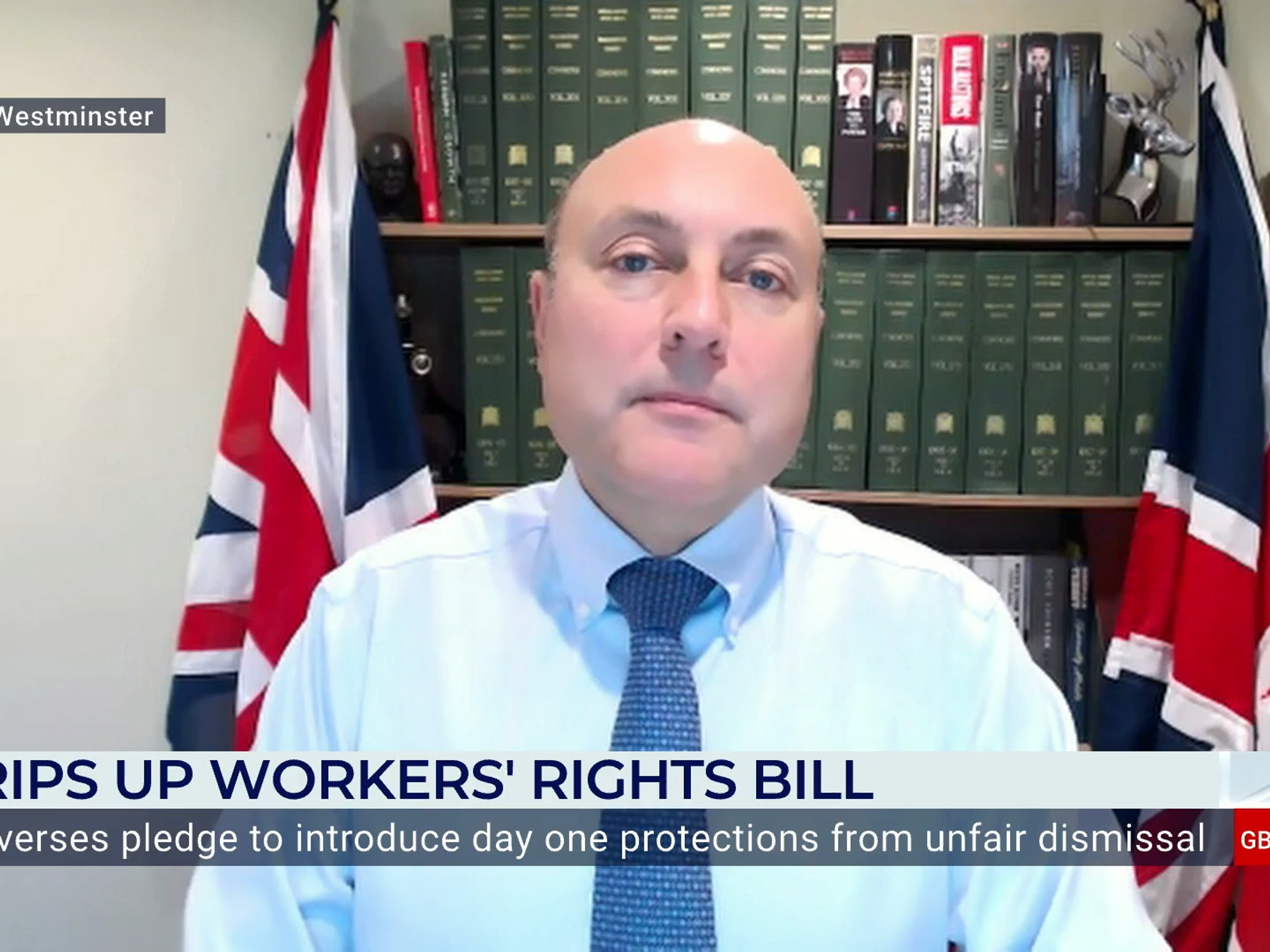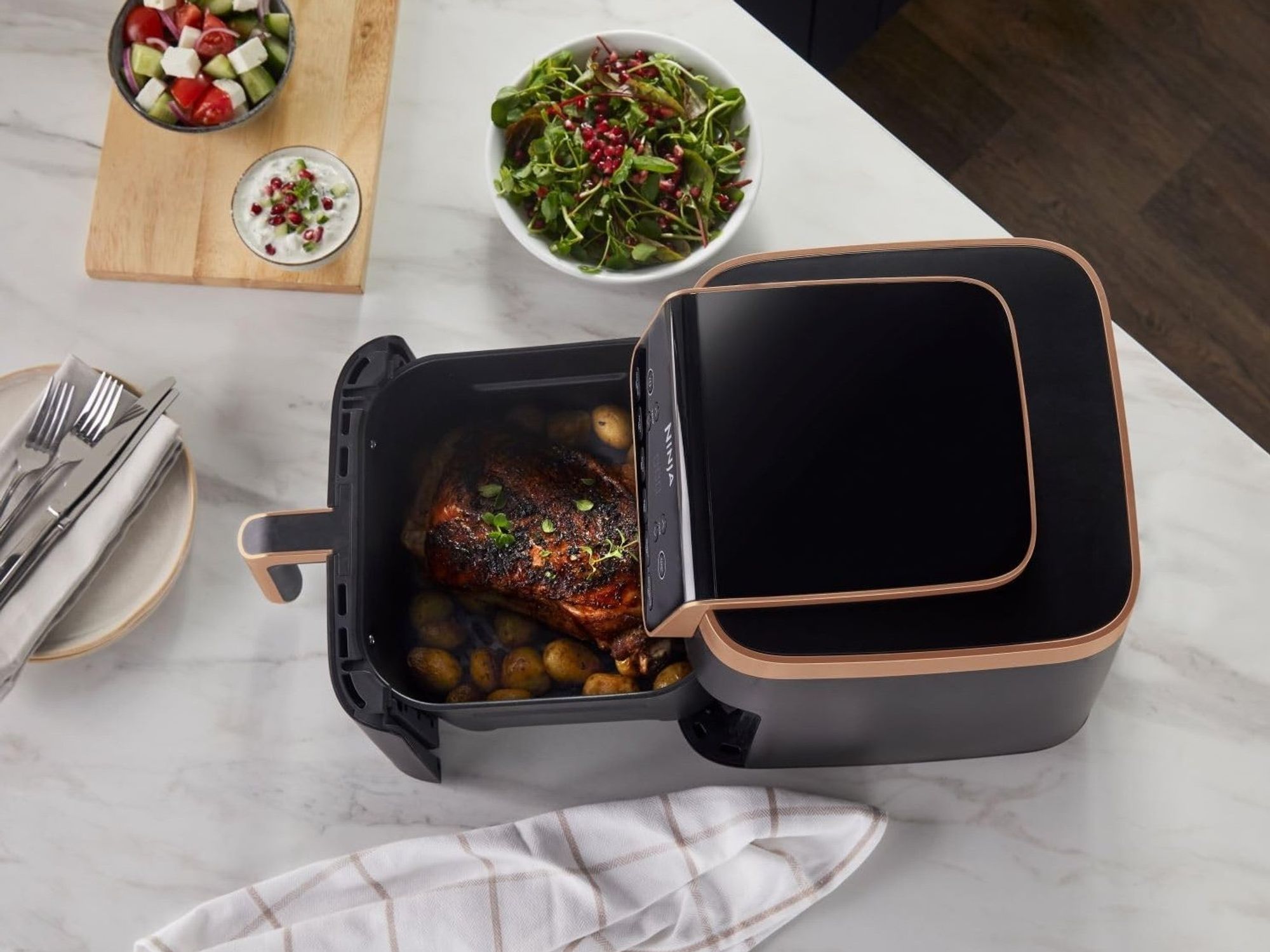Brexit: British businesses may 'give up' imports under new rules

The news comes as Boris Johnson vowed to 'maximise the benefits of Brexit' in 2022.
Don't Miss
Most Read
Latest
A former senior civil servant in charge of Brexit planning has warned some British businesses may “give up importing” as a result of new rules implemented in the new year.
Philip Rycroft, who was permanent secretary at the Department for Exiting the European Union (DExEU) between 2017 and 2019, said the changes that came into play on January 1 will cause “teething problems”, with some sectors hit harder than others.
The news comes as Boris Johnson vowed to “maximise the benefits of Brexit” in 2022.
The Prime Minister, marking a year since the post-Brexit free trade deal with the European Union came into force, said the Government would “go further and faster” to take advantage of the “enormous potential that our new freedoms bring”.
But with the introduction of new barriers to trade with the bloc, Mr Rycroft said some businesses may decide it “isn’t worth the hassle”.
The changes in place from January 1 mean that importers must make a full customs declaration on goods entering the UK from the EU or other countries.
Traders are no longer able to delay completing full import customs declarations for up to 175 days, a measure that was introduced to cope with the disruption of Brexit.
There are separate provisions in place for trade with the island of Ireland.
Mr Rycroft told BBC Radio 4’s PM programme the new rules might be too much for some companies.
“The Federation of Small Businesses reckon that only about a quarter of their members are ready for this, which is a bit surprising in a way because they’d obviously had a lot of notice that this is coming,” he said.
“But let’s not forget, they’ve had a pretty torrid year, most businesses, with Covid and everything else, so a lot of businesses won’t be ready.
“There will be teething problems… but the big question is, how many businesses ultimately think: ‘Do you know what? This is just too much hassle’, and give up importing? Just as some businesses have already given up exporting because it’s not worth it.”
He added: “Businesses exporting to the EU from the UK have already faced these rules, obviously, for the best part of a year. So it’s now going to be those businesses in the UK that import from the EU (that) have got to deal with this, essentially, new Brexit bureaucracy.
“This is what taking back control of our borders means. It will hit some sectors harder than others. The rules are more complicated for animal products, in particular food products that contain bits of animals, because of all the requirements around that.”
Rules on country of origin documents have also become marginally stricter, with declarations needing to be made when goods arrive here.
Mr Rycroft said this will be “really complicated” for certain products that “contain lots of different bits or ingredients”.
Asked if the country is likely to see rising prices or empty shelves, he said: “I wouldn’t overdramatise it. I think at the margins there are new costs, which will ultimately have to be borne by the consumers.
“So HMRC reckon that the total cost of these new systems will be something like £13 billion a year – that’s a lot of money by any token spread across a big population like the UK, of course, that’s modest increases in costs through the supply chain.
“But at the margins also there’ll be some businesses, as I said previously, (who) think: ‘Do you know what? This isn’t worth the hassle.’ So there will at the margins be a reduction in choice as well.
“This is why the Office (for) Budget Responsibility reckons that the net impact of this deal on our wealth as a country will be to reduce it by about 4% in the medium term.
“That’s because trade between the UK and the EU will be a lot less free than it was when we were in the single market.”
The DExEU closed in January 2020, with Brexit negotiations now handled by the Foreign Office.











